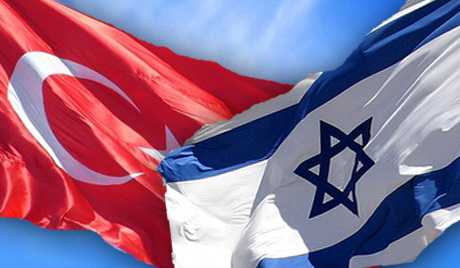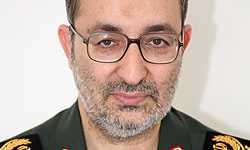President Obama’s visit in Israel was a resounding PR success, judging by various indicators of Israeli public opinion, but as the dust settles, it becomes very clear that the visit was also an impressive diplomatic achievement. All the president’s men can feel satisfied by the decision of PM Netanyahu to terminate the crisis with Turkey, caused by the initial provocation of an Islamic organization and the disproportionate Israeli reaction, leading to the death of nine Islamic radicals.
The apology was long overdue, but better late than never. This blog called on the PM on September 21, 2012 to do just that, bearing in mind the overall strategic interest of Israel, particularly with regard to the deteriorating Syrian situation and its potential damaging implications.
Netanyahu, to his credit, chose his timing to do that — the Obama visit — thus responding to a long-held American expectation from Israel, providing the president with the ability to show actual positive results for the visit. Netanyahu acted in a way which is typical for Israeli governments, though not necessarily to his own, and that is to do what is in the best interest of Israel, but to present it as a gesture towards the U.S.
There are those who argue that he could and should do more of the kind also in the past, and in this way prevent some of the tensions which have become an all too familiar and undesirable feature of the relations between him and President Obama. Yet, what he did was gutsy, considering the Israeli political environment, and the deep-seated resistance there to admit any wrongdoing on the part of the IDF, which rightly continues to be revered by the vast majority of the Israeli people.
PM Erdoghan of Turkey has made his own political calculus, chief among them the fact that the enmity towards Israel being so much in display after the tragic Mavi Marmara incident, did not really pay dividends to Turkey — not in the U.S., not in the E.U., not even in the Arab world. Erdoghan learned that the Arabs are much more preoccupied with the implications of the Arab Spring, in particular the Syrian situation. The Turkish leader realized, while not admitting in public, that there still is a volume of Arab suspicions towards the Turks, a legacy of the centuries of Ottoman rule.
Whatever is the reason, the Turkish PM demonstrated yet again that he possesses qualities of real leadership, among them the ability to sense an opportunity for a change of diplomatic course and take advantage of it.
He is engaged now in a PR campaign in Turkey, designed to maximize the effects of what is presented as an Israeli defeat, whereas PM Netanyahu is engaged in his own campaign, designed to minimize the domestic ill effects of the apology, which for so long he regarded as a non-starter. But, it is in Washington where the White House can really claim a big victory. Two of the U.S.’ main regional allies were at each other’s throats, not a good situation for the U.S., particularly at a time of major regional instability, exactly the type of situation which requires closing of the ranks among the U.S. allies. The Administration was often criticized for what seemed to be a “come from behind” policy, leading to a considerable diminution of the U.S.’ stature in the region.
Well, not so fast. The U.S. proved again that it is the only power capable of bringing hostile parties together, and doing that in a patient way and exactly at the right time. And timing, as Winston Churchill once said, is 50 % of good diplomacy. Here is where the public announcements of the Americans, Turks and Israelis may give just part of the picture. The Israelis were more open to the former two, acknowledging in public that it was the situation in Syria which led to an Israeli adjustment, and made the apology inevitable. Turkish commentators are suggesting likewise, that Erdoghan’s main priority now is Syria, and certain moves by the Obama administration indicate that also the U.S. view the situation in Syria as a regional time bomb that needs to be dealt with and now, rather than on an unspecified date in the future. So is also the position of King Abdallah of Jordan, another valued American ally. The Saudis have already shown for a long while, that they want to see Bashar Assad out, and the soonest the best.
So, now, with the Israeli-Turkish rapprochement, the U.S. can finally cement a strategy about Syria, which can and will be supported by all its regional allies. Not good news for Bashar Assad, whose whereabouts are shredded with growing mystery. Yesterday there was buzz on Arabic Internet sites, according to which the besieged president was critically wounded in an attempt on his life.
The Al Shami hospital in Damascus was under siege, but as yet, these are unconfirmed reports. But the end is near and the regional implications could be devastating, clearly a potential nightmare for the U.S. and its allies. This is why the U.S. needed the Israelis and Turks to reconcile. The bad guys, the Iranians, so aware of their impending likely debacle once Assad is out, were quick to denounce the Israeli-Turkish new deal as another American machination, aimed at Syria.
Put aside their terminology, they may not be wrong. It is indeed the case, that the Syrian situation requires a coordinated American-led action. President Obama’s visit and diplomacy seem to have done exactly that.
via Dr. Josef Olmert: Obama, Turkey and Israel — More Than Meets the Eye.






